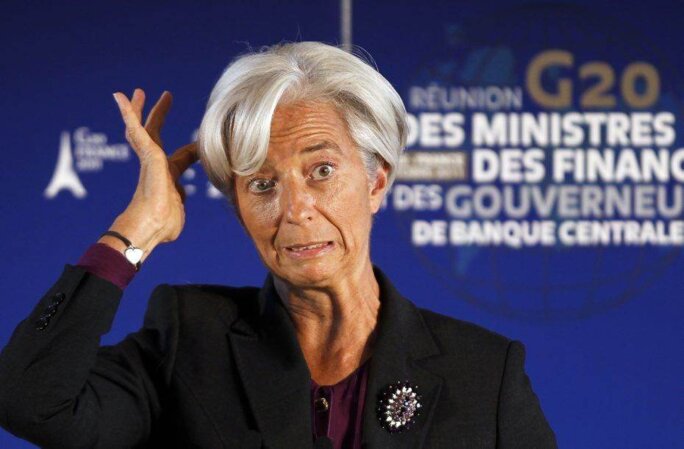The affair involving a 403 million-euro compensation payout to businessman and politician Bernard Tapie has taken a dramatic turn after one of the arbitration judges who oversaw the controversial award was placed under formal investigation for alleged “conspiracy to commit fraud”. Retired judge Pierre Estoup, a former president of the court of appeal at Versailles, was questioned on Monday over the affair and put under investigation - which is one step short of charges being brought - on Wednesday.

Enlargement : Illustration 1

The fact that the 86-year-old judge faces a fraud conspiracy investigation suggests that the three examining magistrates probing the case have unearthed serious and corroborating signs that the process that led to the award to Tapie in 2008 – which included 45 million euros in personal damages – was indeed fraudulent.
In arbitration cases the three arbitrators are supposed to be entirely independent and not connected to the two parties before them. The suspicion being investigated by the examining magistrates is that Pierre Estoup knew both Tapie's lawyer Maurice Lantourne – who has been released after being held for questioning - and Tapie himself, and did not make such relationships clear before the arbitration began. Estoup has denied any wrongdoing and says he has “absolutely nothing” to fear.
News of the latest development in the saga was welcomed by the former head of Crédit Lyonnais, the once state-owned bank whose dispute with Tapie over the sale of his controlling share of the Adidas sportswear and accessory company in the early 1990s ultimately led to the award. “I am happy to see that the justice system is starting to ask itself serious questions about an arbitration which I have always said was, firstly, illegal, and secondly was in my view the result of a gigantic rigging,” said Jean Peyrelevade, head of the bank from 1993 to 2003.
Speaking on Europe 1 radio Peyrelevade described the affair as “one of the biggest scandals of the Republic” and that “the state today [should] try to compensate for the faults of the state yesterday”. In his view the current head of the International Monetary Fund Christine Lagarde – who after questioning last week was placed under the status of 'assisted witness' and who as French finance minister signed off the decision in 2007 to go to arbitration - had “passed on instructions coming from above, that's to say from [President] Nicolas Sarkozy himself”.
According to Stéphane Richard, Lagarde's chief of staff at the time and now chairman and managing director of French telecommunications giant Orange, the initial decision to take the Tapie dispute to arbitration rather than leave it to be dealt with by the courts was made by Jean-Louis Borloo, who was briefly finance minister at the start of Sarkozy's presidency before moving to become minister of the environment. Borloo knew Tapie well and had once been his business lawyer. It was Borloo's successor as finance minister, Lagarde, who later signed off the decision to use the arbitration procedure. There is no suggestion that Lagarde benefited personally from any decision she made, and she denies any wrongdoing.
Borloo, founding president of the centrist party the Union des démocrates et indépendants (UDI), has however denied that he was involved in the Tapie arbitration decision.“I was at the [finance ministry] for four weeks. No one approached me about this case,” he told RTL radio on Thursday. “I gave no instructions,” said the former minister, adding that he “completely” disagreed with Stéphane Richard's version of events.
'There are obviously things in this case I don't know about'
The investigation has in any case started to focus on what part the Elysée may have played in the affair, and especially on the role of Claude Guéant, who was at the time President Sarkozy's chief of staff at the Elysée. According to Mediapart's sources, one reason that Lagarde escaped being placed under formal investigation over the affair was that under questioning she accepted that the president’s office was involved in taking decisions on the case. According to a person close to Lagarde she was irritated by a recent public statement given by Guéant in which he insisted that he had played no role in the Tapie affair and that all the decisions were taken by the finance ministry.
During searches earlier this year at premises belonging to Tapie's lawyer Maurice Lantourne, fraud squad officers found an exchange of letters between the lawyer and Guéant. Lantourne himself was released this week after questioning and was not required to face questioning by the three examining magistrates.
The current government has meanwhile decided that it will formally apply to become a plaintiff – partie civile in French - in the investigation, as a potential victim of any fraud or other crime that may have taken place. This will enable the state to defend its own interests in the affair – the arbitration award was made from the public purse - and have access to the investigation files. According to the finance ministry this step will be taken “as soon as possible”, probably next week.

Enlargement : Illustration 2

Becoming a civil party to the investigation may also provide the government with evidence to start appeal proceedings to have the 2008 arbitration decision annulled. This would allow the state to claw back the 403 million euros that went to Tapie and his creditors. According to the finance ministry such an appeal is “not excluded but not in course”.
Bernard Tapie himself described the decision to put Pierre Estoup under formal investigation as “incomprehensible”. He told AFP news agency: “The grounds for the placing under investigation are so serious, there are obviously things in this case I don't know about. Conspiracy to defraud, that means that it's very serious.” Tapie said the decision was even more “incomprehensible” given that his own lawyer had been released after questioning and was “not even banned from seeing me”.
------------------------------
English version by Michael Streeter


